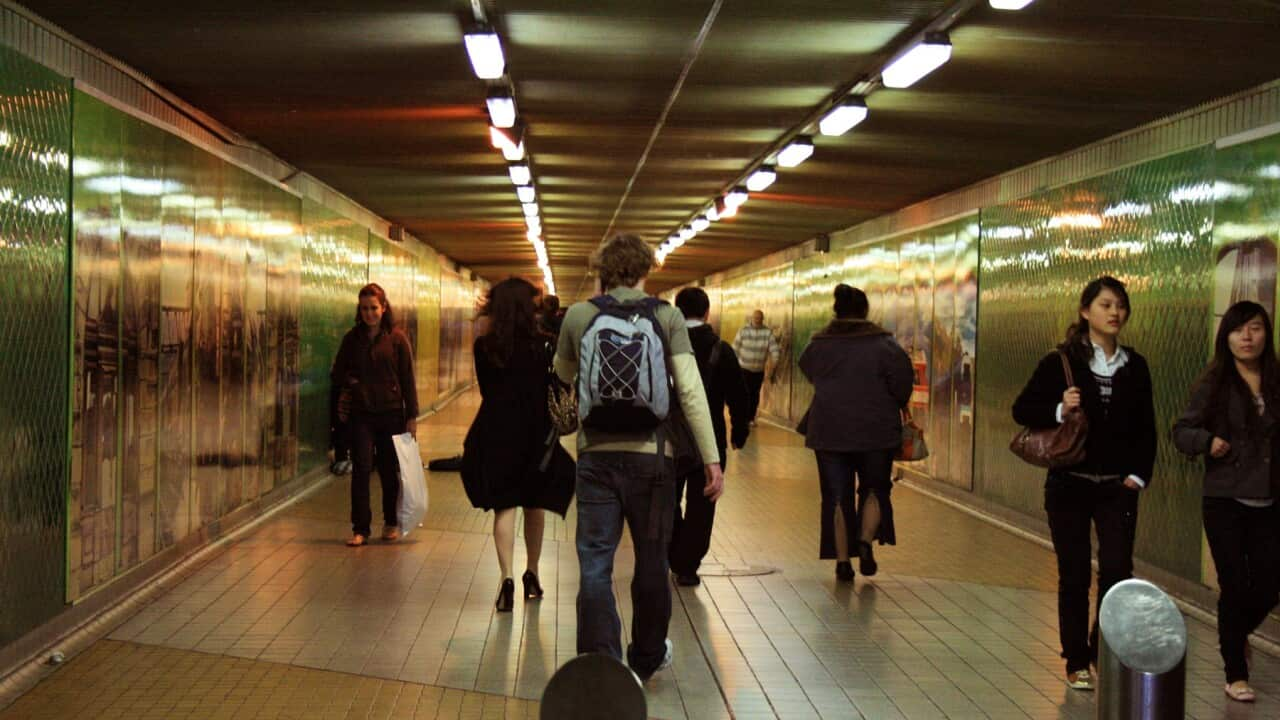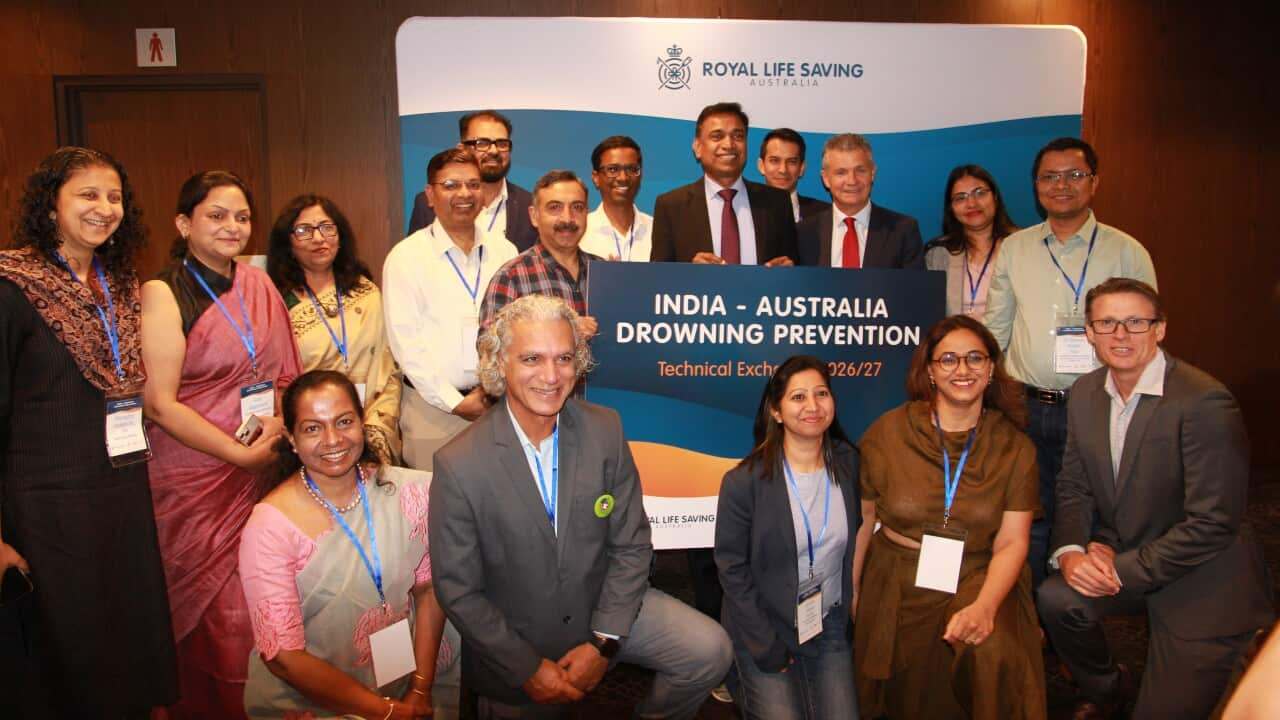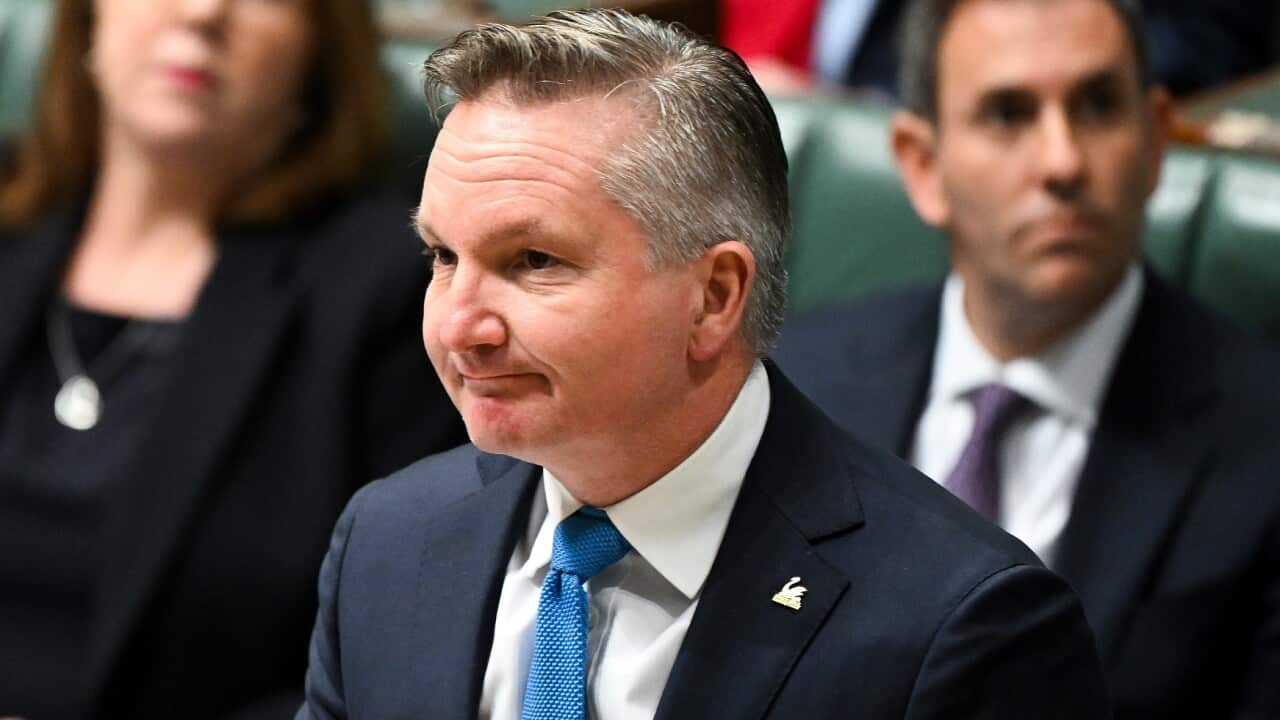Listen to Australian and world news and follow trending topics with SBS News Podcasts.
TRANSCRIPT:
From new Australian Federal Police commissioner Krissy Barrett:
"Under my leadership, the AFP will have a laser focus on disrupting crimes that impact our sovereignty, our democracy, our social cohesion."
- to Prime Minister Anthony Albanese:
"They were attempts to undermine social cohesion and sow discord in our community."
... Social cohesion has been a popular phrase for our political leaders, as antisemitism envoy Jillian Segal has noted:
"We talk of social cohesion, and it's just easy to say those words."
It's also been a consistent theme in Australian culture, if the popularity of songs like this from The Seekers are any guide.
But what is social cohesion exactly?
Dr James O'Donnell from the Australian National University is one of the lead co-authors of the Scanlon Foundation report.
He’s told SBS Hindi the report measures exactly this every year.
"We can think of social cohesion as a really big concept, an idea that really captures so much about how society sticks together, how they make friends, connect with each other. How much they get along well, how much they work together on common things."
The report paints a complicated picture that suggests Australians' sense of belonging has been declining over time - and this appears to be deeply connected to generational tensions.
The so-called silent generation - those born between 1928 and 1945 - has the strongest sense of belonging in the community, at 85 per cent.
But from there it starts to drop across age groups: baby boomers are at a 73 per cent sense of belonging, generation X at 53 per cent, and for millennials and generation Z, only 29 per cent of young adults aged 18 to 34 reported feeling a sense of belonging.
Dr O'Donnell says some of this is related to normal social and cultural change, in terms of how we identify with Australia.
But he also says it could be related to higher levels of isolation.
"People who say they are feeling lonely and socially isolated - they are much less likely to say they have a sense of belonging in Australia."
These results are also likely to be related to financial pressures.
Economic disadvantage continues to be the strongest predictor of low cohesion, with those experiencing hardship reporting lower levels of wellbeing, trust, and connection to their neighbours.
The Scanlon report makes it clear these pressures remain high, with 40 per cent of Australians describing themselves as 'just getting along' or 'struggling'.
In recent decades, Australia has experienced a notable decline in home ownership and a correlating rise in the proportion of renters, with those aged 25–34, for example, seeing a decline from 61 per cent to just 43.
A newly released Anglicare report says for many of those renters, affordability has been steadily worsening, even for middle income full-time workers, according to Anglicare CEO Kasy Chambers.
"What we're seeing in this report is that rental stress, along with other signs of poverty - like coming to our emergency relief services that we operate across the country for food parcels and fuel vouchers - rental stress and those other signs of poverty are climbing the income ladder."
Amid these financial pressures, the Scanlon report offers a mixed result on the types of major issues that also create tensions within the community, particularly multiculturalism.
Dr O'Donnell says attitudes towards immigration and diversity remain broadly positive, though the balance has shifted amid social and economic pressures.
"83 per cent of us agree that multiculturalism has been good for Australia. 80 per cent say that immigrants are generally good for the economy. Similar proportions say that immigrants improve Australian society by bringing new ideas and cultures, and 90 per cent of us say that immigrants can make just as good a citizen as people born in Australia."
Yet Dr O'Donnell says the report also reveals growing concern about prejudice and discrimination, which affects how we relate to each other.
"35 per cent of people have a negative attitude towards Muslims. Anywhere between 27 to 43 per cent of people have negative attitudes towards migrants from a range of countries including China and India and Sudan, whereas they are much less likely to have negative attitudes towards European immigrants. Which means that racism is still a problem in Australia."
Still, despite the report suggesting an ongoing strain in peoples' sense of belonging, trust, and identity, Dr O'Donnell remains optimistic.
He argues that local connections - and this broad acceptance of multiculturalism - are a big reason why he says most Australians continue to report happiness and a strong sense of community.
"You know, I have confidence that as long as we can weather these really sort of tough global conditions, these anti-migrant sentiments that we see across the world, that our support for multicultural Australia can continue to be a strength. But at the same time we can't take that for granted... while thinking about ways that we can sort of reverse some of those trends in belonging."













